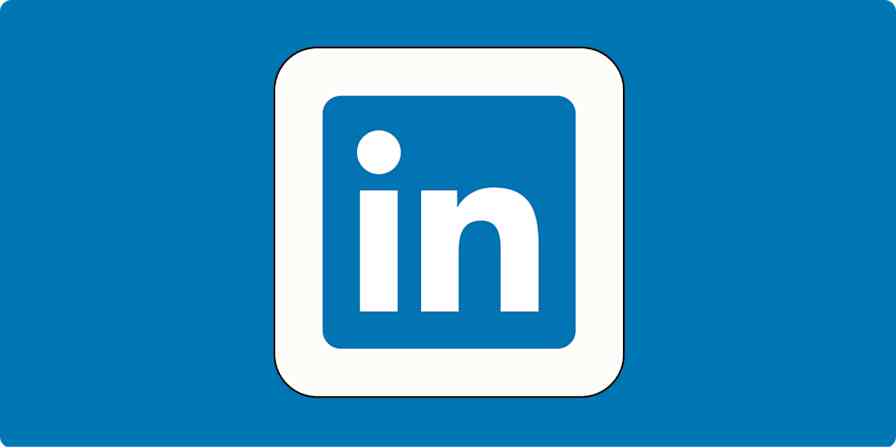During a conversation with one of my clients recently, they mentioned that they'd lost more than $20k on Google Ads over the course of a year. They ended up bringing on a paid ads consultant, who helped them avoid an even bigger money pit, but $20k is a big price to pay for a few simple PPC mistakes.
I took this as inspiration to chat with over a dozen paid ads experts—folks who've audited thousands of Google Ads accounts throughout their careers—to learn what mistakes people tend to make with Google Ads.
Turns out there are a few buckets that almost everything fell into.
1. Inaccurate conversion tracking
Want your audience to make a purchase? Or install your mobile app? Maybe you want them to submit the form on your website? Whatever your conversion goal is, if you're spending money getting it, you want to know how effective your campaigns are.
Setting up conversion tracking can help you measure what percentage of paid traffic is taking the desired action. But there are two common mistakes bundled here:
Tracking non-conversion events as conversions
Tracking duplicate conversions
Tracking non-conversion events as conversions
Tracking non-conversion events—like page views, time on page, button clicks, support form submissions, and ungated content downloads—as conversions can really mess up your ad spend.
Odi Caspi, owner of EffectiveMarketing.uk, found one of his clients making the same mistake while conducting an audit. Here's what he told me:
"A recent account I audited was optimizing for people visiting the contact page without necessarily filling any form or contacting the client. Sure, it showed some level of intent, but it completely skewed the data. It looks like the campaigns are generating plenty of conversions. In reality, they were just getting people to view a page."
If your conversion goal is brand awareness, you can consider events like time on page or page views as conversions. But if your goal is to get your paid traffic to make a purchase, for example, tracking non-conversions will give you a seriously inflated conversion rate. And that'll make you think that your campaign is successful, even when it's decidedly not.
Tracking duplicate conversions
While we're talking about inflated conversion rates, Jason Hines, CEO at Gigasheet, identified another common mistake: tracking duplicate conversions.
"It's important to pay attention to settings for tracking multiple conversions. For some businesses, it probably makes sense to track multiple purchases from the same user, for example in eCommerce. However, for a B2B SaaS business like ours, we don't want to track several form submissions and calls from the same person as multiple conversions. We are careful to ensure that our conversion tracking accurately reflects our performance as much as possible."
Paid advertising is all about data, and if you're tracking the wrong things—or the same thing twice—your data will be skewed, and your decisions won't be based in reality.
2. Ignoring close variants of exact match keywords
Have a conversation with just about any Google Ads expert, and they'll tell you how badly they miss the good old days when exact match was truly exact match.

But exact match hasn't been exact match since 2014.
Before then, if you'd set the exact match keyword as red shoes, your ad would only appear for the exact query red shoes.
Now, your exact matches will also match for close variants: slight variations of exact match keywords. Here's how that's evolved over the years:
In 2014, close variants of exact match keywords included plurals and misspellings.
In 2017, different function words and word order came into the mix.
In 2018, Google announced the inclusion of keywords that share the same meaning as exact match keywords.
And Google has announced several other changes to exact match since then.
Kevin Redfern, a Google Ads consultant, highlighted: "It's really important to understand that exact match no longer means exact match. In fact, Google now shows close variants of your exact match keyword. As a result, you must keep a close eye on the search terms triggering your ads by viewing the search term report and adding negative keywords appropriately."
He followed up with an example:
"You may have added 'same day courier' as an exact match keyword; however, your ads could actually show for 'courier collection today.' This is because Google considers 'courier collection today' to be a close variant of 'same day courier.' In reality, this particular search term doesn't match up with the service being advertised. A same-day courier service collects and delivers during the same day, not just collection.
Depending on the size of the account, these irrelevant search terms can mount up quite quickly and cost you a lot. Hence, it's important to review the search term report frequently and add the irrelevant close variants to your negative keywords list to prevent these searches from happening again."
Don't get me wrong: close variants can be helpful. If men shoes is your exact match keyword, showing up for shoes for men is fine—good, actually. But if the close variants of exact match keywords have a different intent or meaning, it'll lose you money.
As Kevin suggested, keep an eye on your search term report, and add all the irrelevant close variants to your negative keywords list. And be sure to review that report on a regular basis, in case new close variants pop up.
3. Keeping the default geo-targeting settings
If you own a restaurant in New York, you don't want your ads to show up for people who can't have dinner there tonight. But if you don't tweak your geo-targeting settings accurately, there's a decent risk of this happening.
Why? Oliver Cornelius-Knudsen from Scribe tipped me off to this default setting.

When you're setting up your Google Ads campaign, it's easy to miss the sneaky expansion menu under Location settings. If you click it, you'll see that Google's default location targeting is set to "Presence or interest: People in, regularly in, or who've shown interest in your targeted locations (recommended)."
But people who've "shown interest in" New York aren't coming to your Manhattan location for dinner tonight.
Sometimes you'll want your ads to be displayed to people who've shown interest in your target locations, but otherwise, you need to change the geo-targeting option to Presence: People in or regularly in your targeted locations.
4. Irrelevant landing pages
According to Google, "Landing page relevance plays a major role in how Google Ads calculates your Quality Score. The more relevant your destination page is to your chosen keywords, the higher your Quality Score will be."
That's pretty clear cut.
A low Quality Score means that you'll have to pay a higher cost-per-click (CPC). And if your landing page isn't relevant to your chosen keywords, your chances of conversion are also lower. It's a lose-lose.
That's why Klaus-M. Schremser, co-founder of Usersnap, thinks that landing page irrelevance is the biggest mistake companies can make while running Google Ads.

And he's not alone. After auditing a client's Google Ads account, Ishaan Shakunt from Spear Growth identified that their ad campaign groups weren't relevant to the landing pages they were directing traffic to:
"Upon conducting an audit, our first step was to reorganize their ad groups, which helped them save over 30% of their advertising budget over the next year while also generating better results."
5. Not trademarking branded keywords
Your competitors can bid on your branded keywords, and your only option is to get into a bidding war.
One thing you can protect against is having competitors use your keywords in their ad copy. Sure, they can still bid on your branded keyword, but if it's trademarked, they can't put it in their ad. That means their Quality Score will go down since the keyword isn't relevant to the ad (resulting in higher CPC and lower ad position).

If you see your competitor(s) using your trademarked keyword in their ad copy, you can submit a trademark complaint to Google.
6. Not automating your ad workflows
Google Ads campaigns have a ton of moving pieces, which means they're ripe for automation. If you're not automating your campaigns, you're wasting resources that could be put toward other human-necessary tasks.
With Zapier's Google Ads integration, you can automatically get instant access to lead information, send notifications about campaigns, improve retargeting efforts, add leads to your marketing funnel, and more. Here's some inspiration for how to get started:
Or, you might be inspired by one of these pre-made workflows.
Add new Shopify customers to Google Ads Custom Lists
Create Google Sheets rows for new Google Ads leads
Add new Mailchimp subscribers to Google Ads customer lists
Zapier is the most connected AI orchestration platform—integrating with thousands of apps from partners like Google, Salesforce, and Microsoft. Use forms, data tables, and logic to build secure, automated, AI-powered systems for your business-critical workflows across your organization's technology stack. Learn more.










